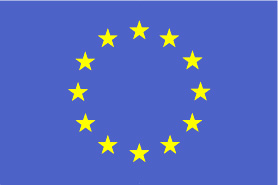Key words: pierre verluise, roopa chauhan, european citizenship, lobbying, construction of europe, interest groups, decision-making process, united kingdom,germany, denmark, second class citizens, average citizen, france, japan, united states of america, financial fraud of the community’s budget, democracy, crime, democratic deficit.
The signatory states of the Maastricht Treaty resolved to “establish a citizenship common to nationals of their countries.” (Treaty on the European Union, Preamble). This principle manifests itself in several ways, however nowhere is it more evident than in the following: the right to vote, eligibility in municipal or European elections and even diplomatic and consular protection.
Generally speaking, the construction of Europe has more than likely extended European citizenship to nations of all European Union member states. However, there is one aspect of the construction of Europe that has weakened the notion of European citizenship: lobbying, which essentially refers to the political representation of at least 3,000 of the most diverse interest groups to European Union Community institutions through more than 10,000 lobbyists. Their work, above all, consists in influencing the decision-making process and European Union Community policy that will eventually be incorporated into national law. Their targets are experts, political representatives, European parliament commissions and diplomats of the various member states. They employ a plethora of methods: presentations of studies that present their agenda in a favourable light; giving away invitations to events where meetings of all sorts are likely to take place … However, they are also likely to purchase documents concerning the Commission’s work, sell a service in exchange for a high percentage of the amount of money attributed to the region in question or even provide invitations to tender …
The Treaty of Rome that created the European Economic Union dates back to 1957, but lobbying in Brussels came into its own only after 1973, with the entry of the United Kingdom. Indeed Anglo-Saxon countries have implemented lobbying techniques for a long time. Gradually, other member countries discovered the technique and put it into practice in their own unique ways. However, only two members sought to limit/control this strategy: Germany and Denmark. At the European Union level, however, the control of public money and lobbies remains more or less virtual and notoriously ineffective. This said, the development of lobbying at the heart of the Community’s institutions raises key questions regarding European citizenship.

Second class citizens ?
First of all, does lobbying not render the numerous European nationals, unaware of their impact on policy and nevertheless incapable of raising the funds necessary to hire the services of a lobby, second class citizens? If a wealthy interest group can influence a decision to its advantage, does it not do so, by default, to the detriment of the average citizen? Perhaps the average citizen believes that Community institutions make the public's general welfare a priority. This same issue arises when considering the national origin of the citizen concerned. After all, is the national of an Anglo-Saxon country, that has quickly become familiar with this new mode of political influence, not in a better position politically speaking than a national of a country that has been slow to catch on to the rules of the game? Let us take the arbitrary example of, say, the French, who have arrived relatively late onto the lobbying scene and in a rather anarchistic way. Despite the complicated nature of this political process certain transnational currents seem particularly active: a mish mash of ex-post-neo communists and ‘alter-globalization activists’ use lobbying to infiltrate and occupy power niches in the name of a pluralist approach to international relations.
Japanese and American pressure groups are not stupid
Secondly, does lobbying not leave the door open for countries outside the European Union to influence the community-building process? Japanese and American pressure groups are not stupid. They play quite an active role in European institutions. As the EU’s commercial competitors of the now twenty-five countries, which is a bit problematic given the fact that they have access to strategic information quite readily. Furthermore, they can weigh in on community decisions (and indecisions) even ones regarding highly sensitive topics.
In this way, the American lobbying firm, Burson Marsteller is associated with BSK office of public relations in Brussels. Its agenda includes the strategic management of entire campaigns on themes/issues relating to the public interest, the establishment of grassroots support, creatingrelationships with the media, opening a dialogue with NGOs, and lauchning internet campaigns. Fundamentally, these projects all serve to influence the political process.
It is difficult to see what would prevent networks of outlaws to take advantage of this technique
Thirdly, does the lack of control, where lobbying is concerned, not promote criminality? It is difficult to see what would prevent networks of outlaws to take advantage of this technique in order to gather information, to make contacts and benefit from the various opportunities on offer, all thanks to this strategy. When we know that fraud is close to 15% of the Community’s budget, it seems only fair to bring this issue out into the open. Financial fraud puts into question the very basis of policies decided by the nations of Europe. While the EU must rise to the challenge of enlargement, mostly in terms of its budget, fraud is a commercial impediment to Europe, to European developmental policy, to a common agricultural policy and to the regional and social politics of Europe. To put this in more political terms, experts all agree that crime and democracy do not mix, if only because of the corruption it entails. If the original fifteen are not completely exempt from this, the new members of the European Union are most certainly not given their shared heritage of the problem.
Let us conclude with one final question: does resolving the democratic deficit inherent to the community’s construction not also involve giving Europe a way of tangibly curtailing - not just virtually - lobbying in the institutions of the European Union?
Translated by Roopa Chauhan
Copyright 2004, april-Chauhan-Verluise / www.diploweb.com
URL : http://www.diploweb.com/english/lobbying.htm